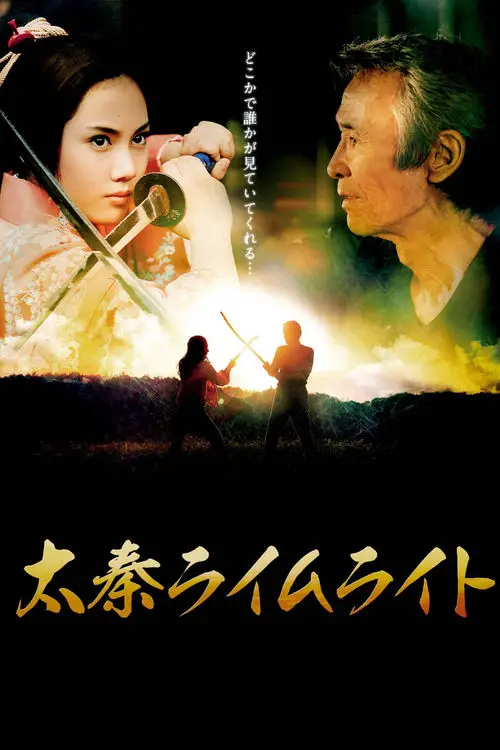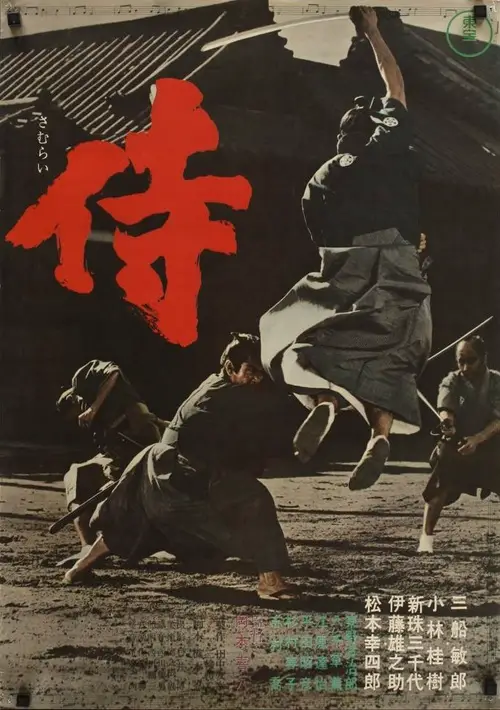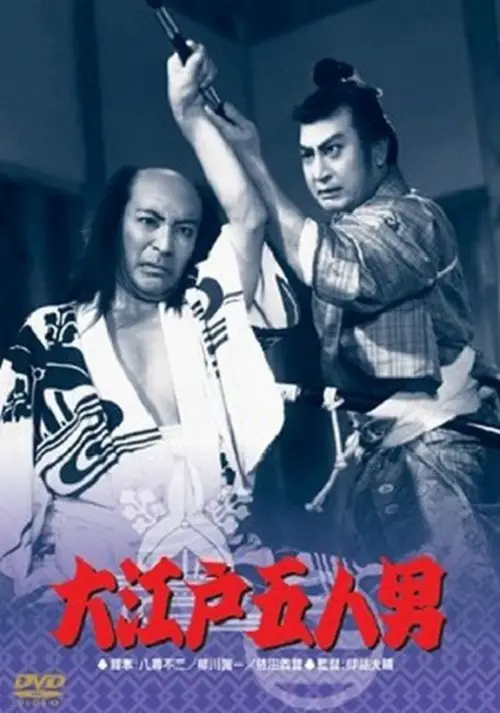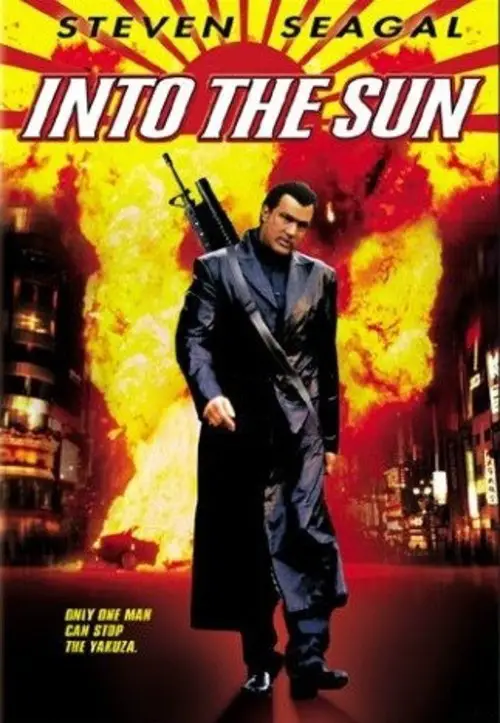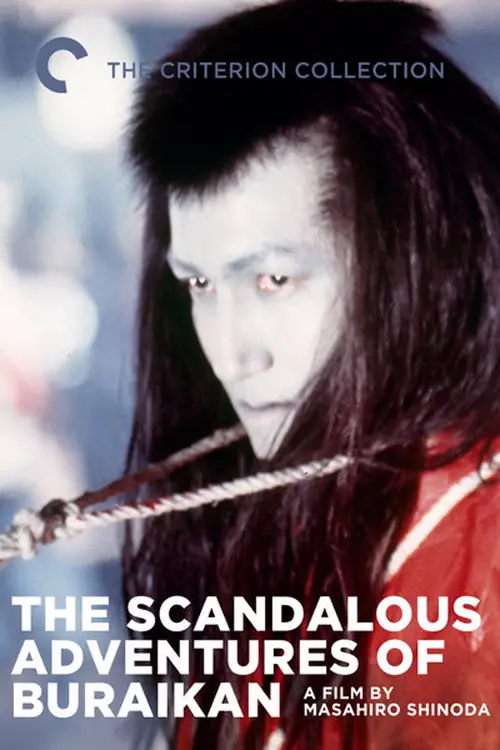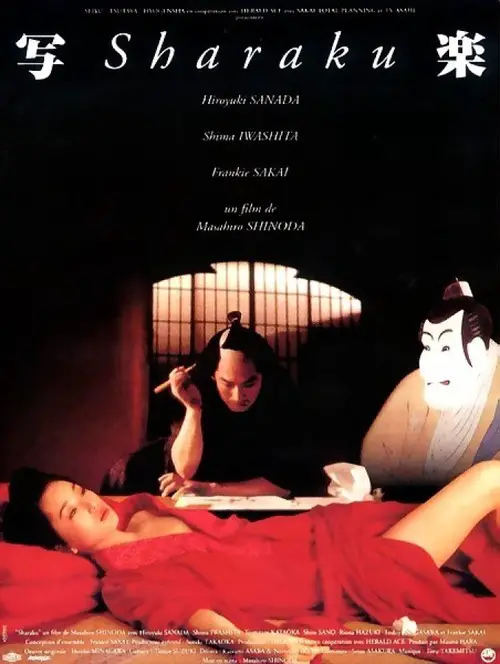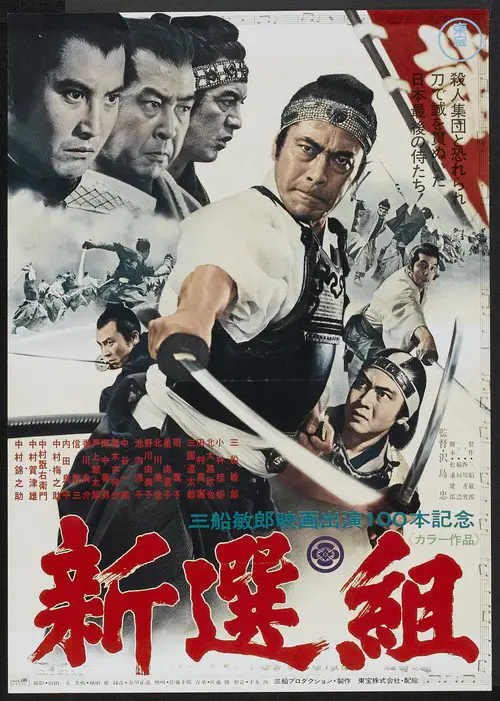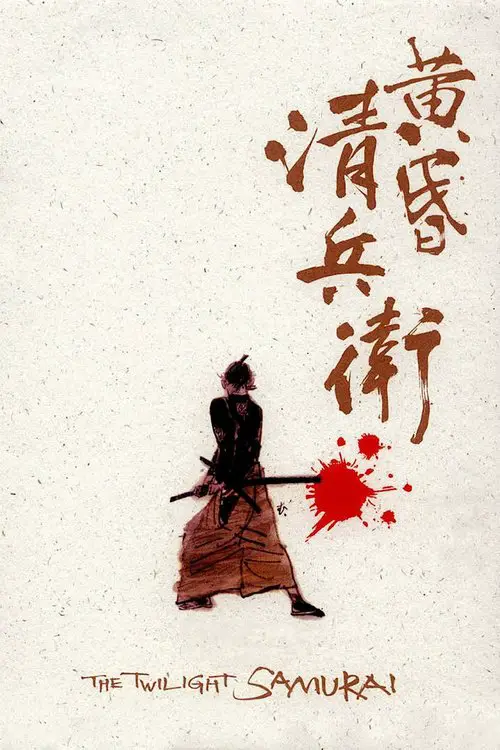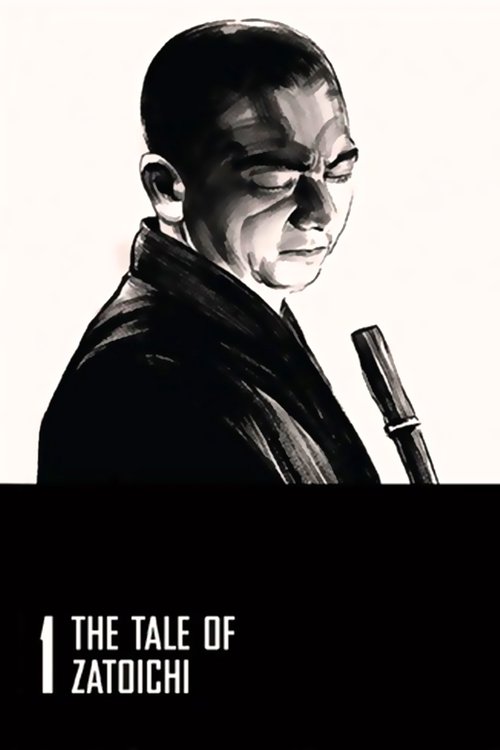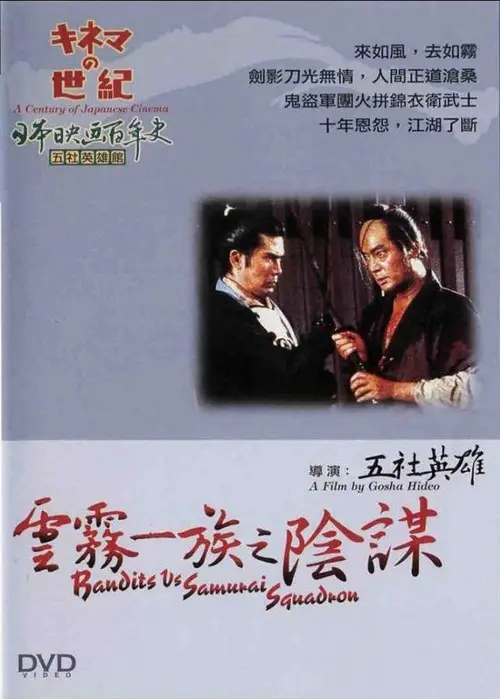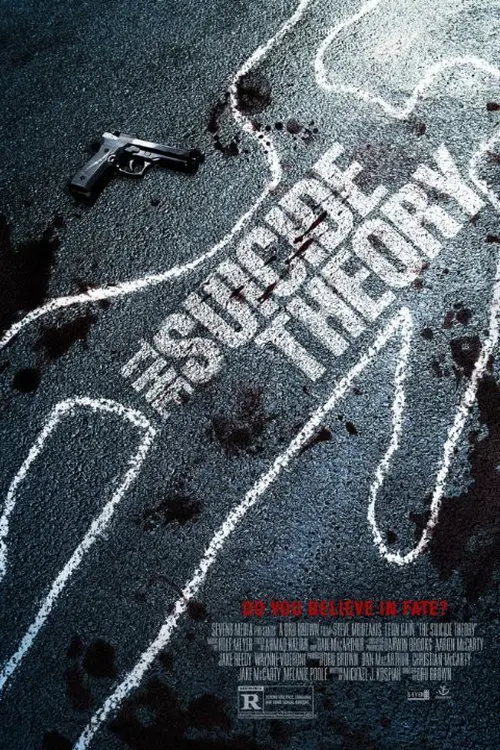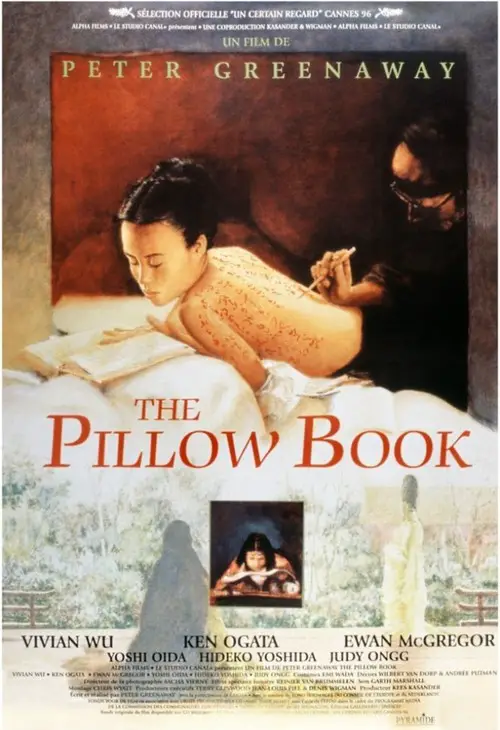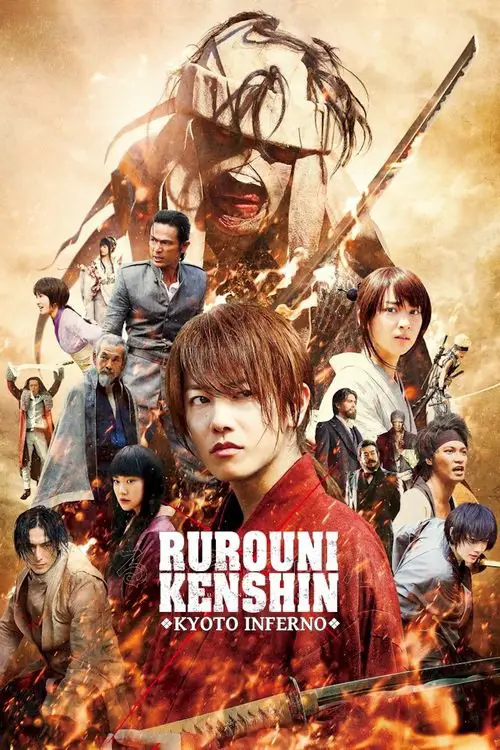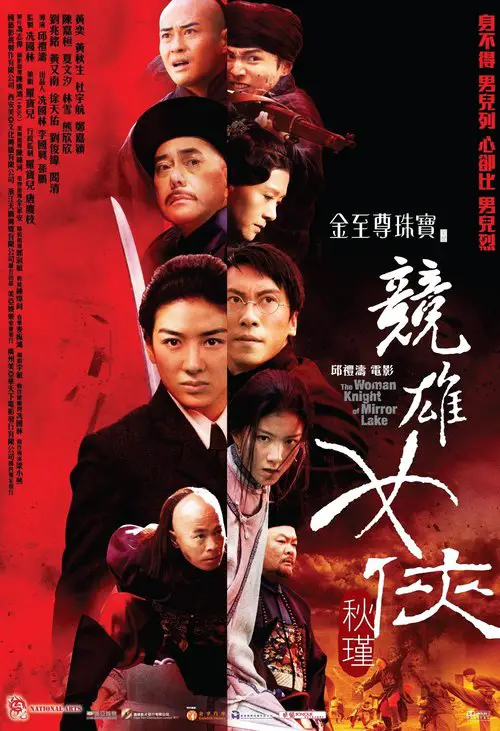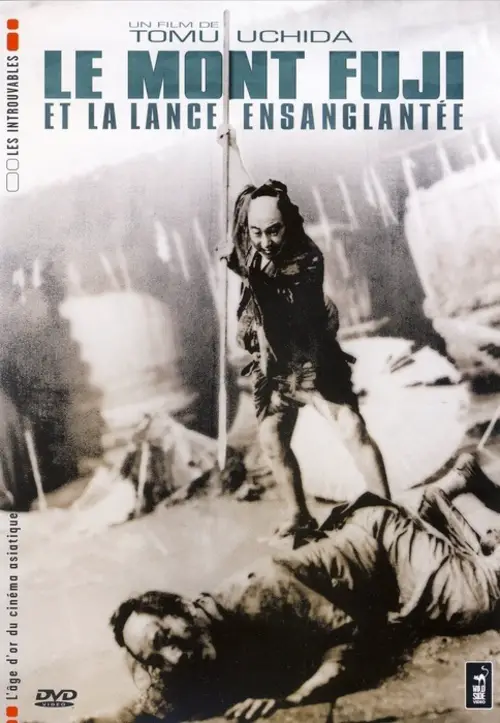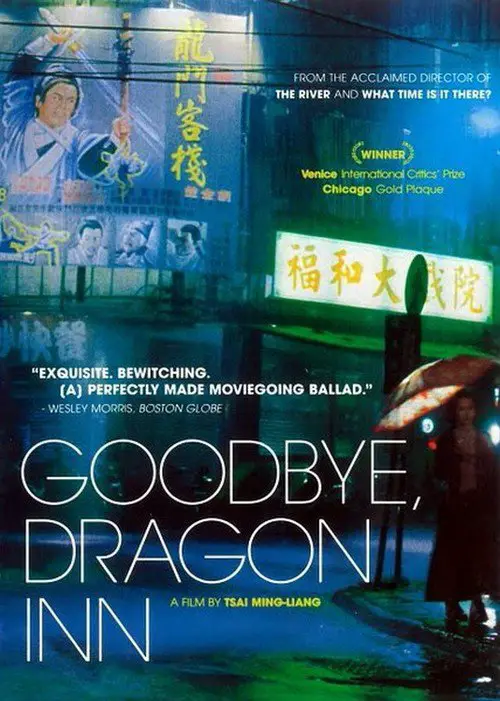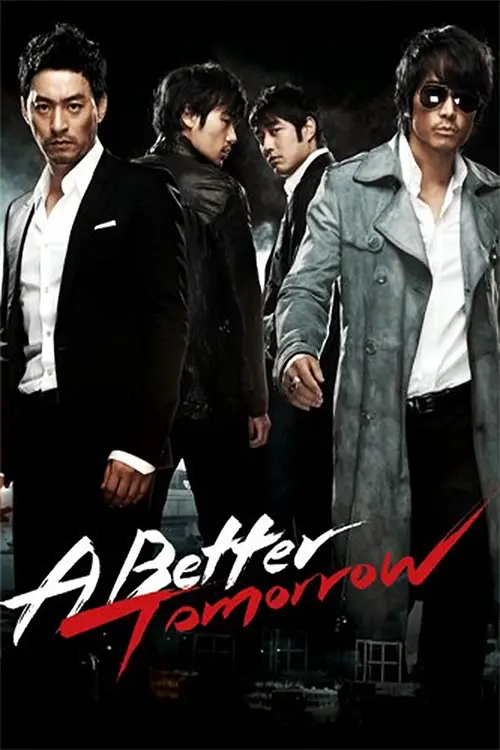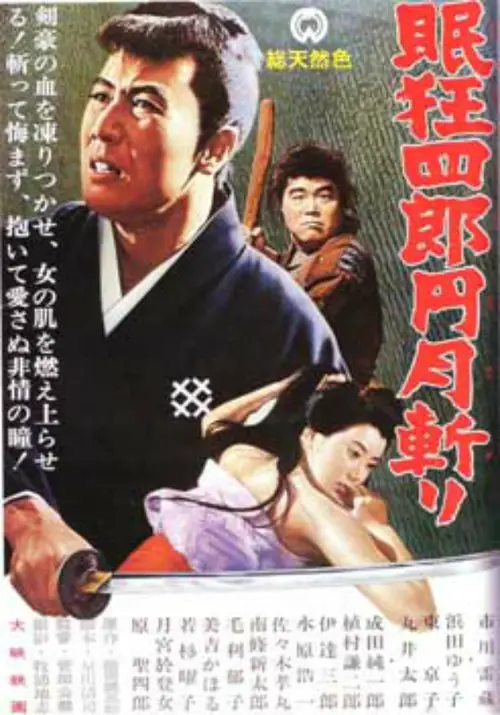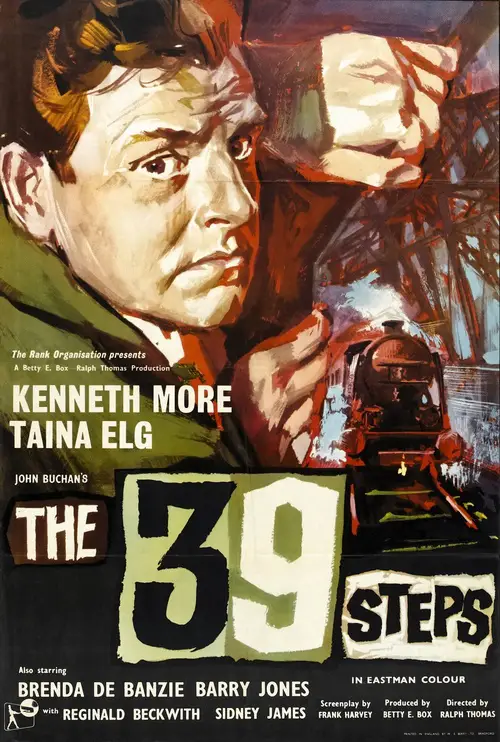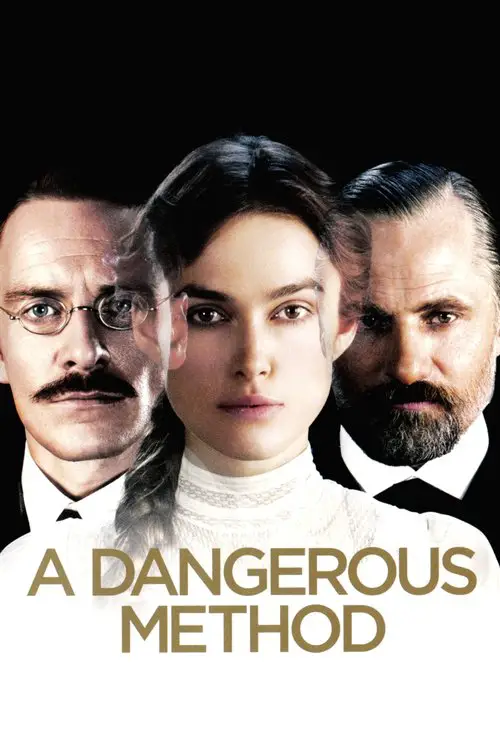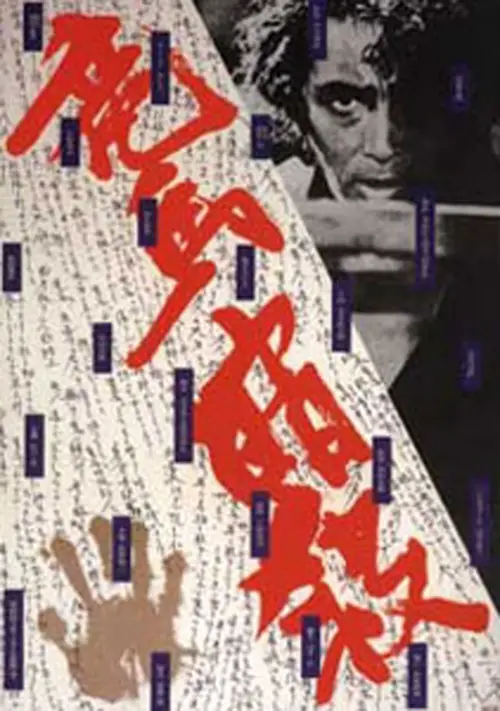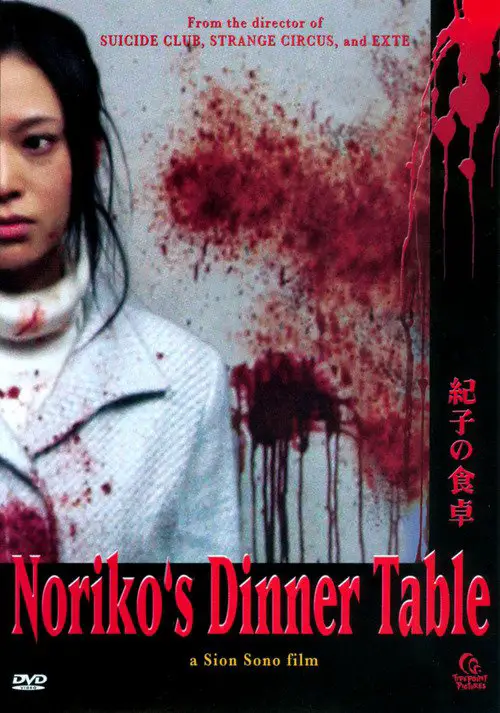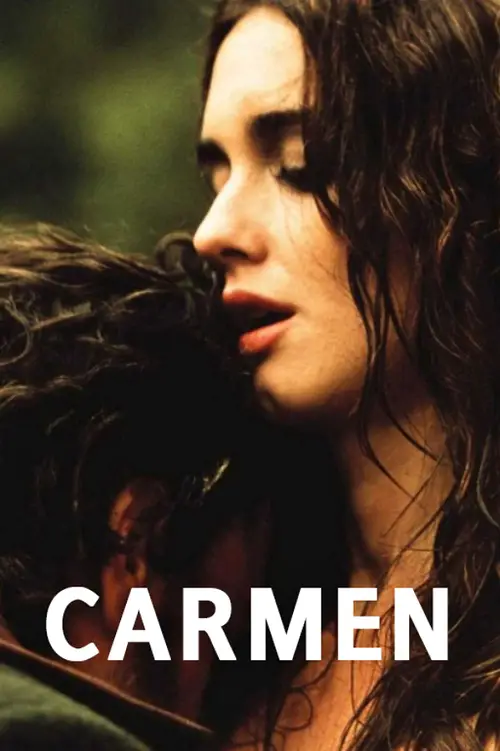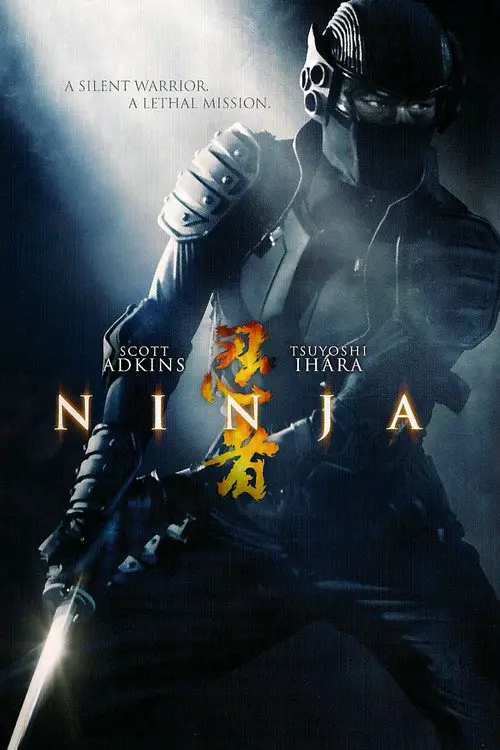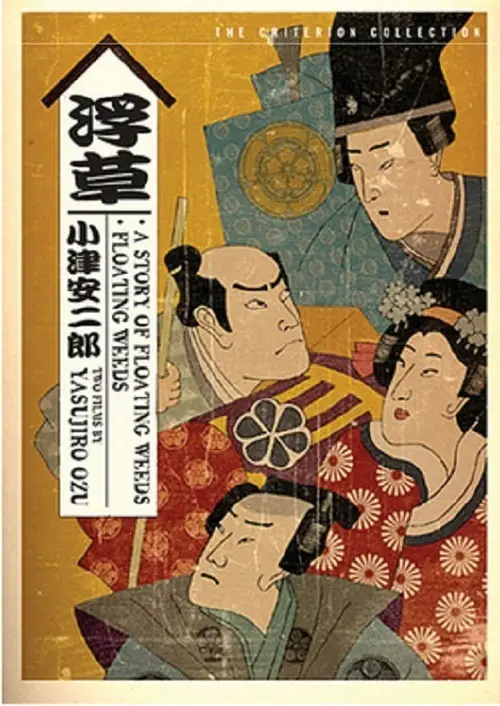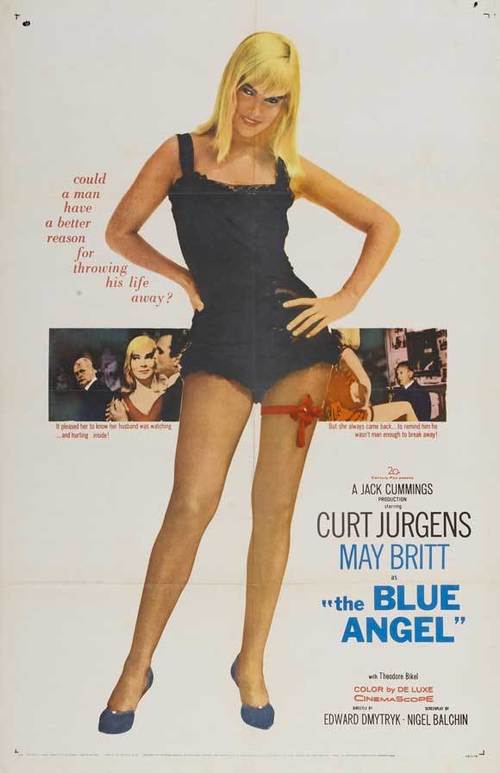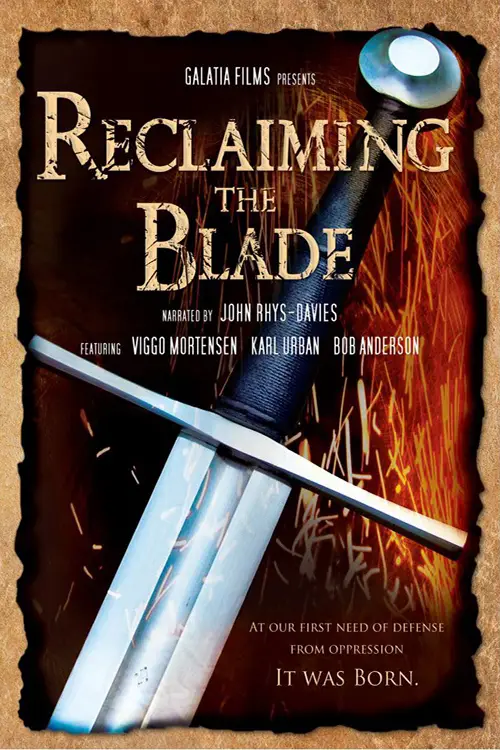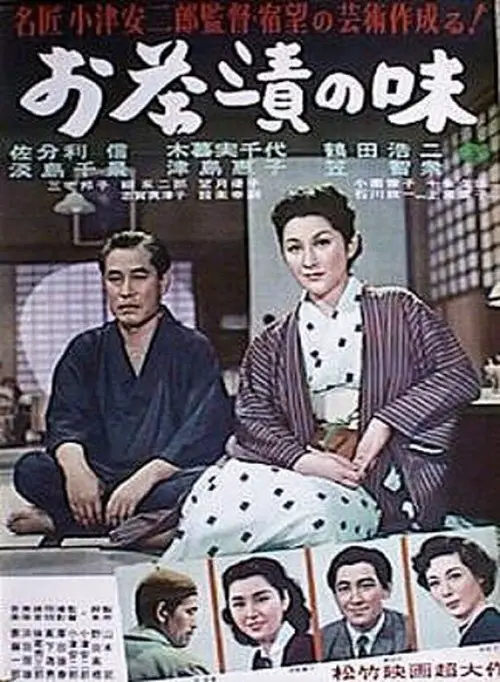An Actor's Revenge (1963)
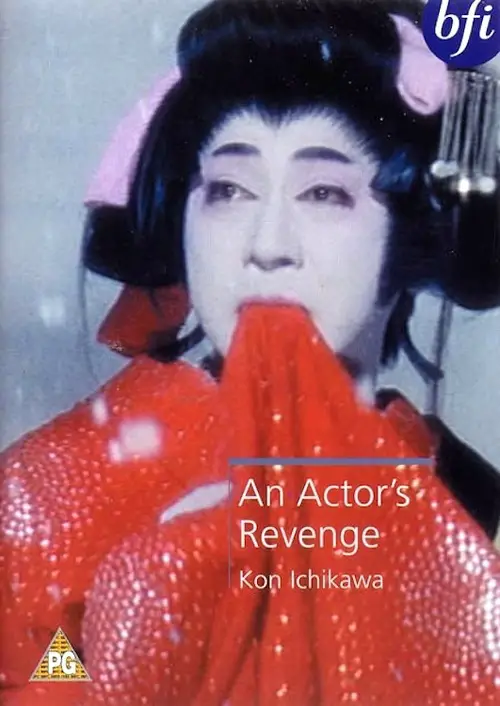
Similar movies
In the Edo period, a nameless ronin accepts an assignment to go to a mountain pass and wait. Near the pass he stops at an inn where a collection of characters gather, including a gang set on stealing shogunate gold that's soon to come over the pass. When the Ronin's assignment becomes clear, to help the gang, he's ordered to kill the inn's residents, including a woman he's rescued from an abusive husband. He's reluctant to murder innocent people; then he learns that the gold shipment is a trap and he's part of a double cross. How he sorts through these divided loyalties tests of his samurai honor, and perhaps of his love for a woman.
A humble and simple Takezo abandons his life as a knight errant. He's sought as a teacher and vassal by Shogun, Japan's most powerful clan leader. He's also challenged to fight by the supremely confident and skilful Sasaki Kojiro. Takezo agrees to fight Kojiro in a year's time but rejects Shogun's patronage, choosing instead to live on the edge of a village, raising vegetables. He's followed there by Otsu and later by Akemi, both in love with him. The year ends as Takezo assists the villagers against a band of brigands. He seeks Otsu's forgiveness and accepts her love, then sets off across the water to Ganryu Island for his final contest.
February 17 to March 3, 1860, inside Edo castle. A group of assassins wait by Sakurada Gate to kill the lord of the House of Ii, a powerful man in the Tokugawa government, which has ruled Japan for 300 years. They suspect a traitor in their midst, and their suspicions fall on Niiro, an impoverished ronin who dreams of samurai status, and Kurihara, an aristocratic samurai who befriends Niiro. Niiro longs to identify his father, knowing he is a high-ranking official who will disclose himself only if Niiro achieves samurai status. With American ships in Japan's harbors, cynicism among the assassins, and change in the air, Niiro resolves to reach ends that may prove ephemeral.
During the 17th Century roving bands of hatamoto were causing trouble in the new capital city of Edo and constantly fought with the townspeople at every turn. The leader of these ruthless samruai was Mizuno Jirozaemon, who despite his high rank was in deep financial distress, thus leading to a tragedy that shook the very streets of the city.Opposing him was Banzui-in Chobei, the âProtector of the Weakâ who was willing to put his life on the line to save the 808 districts of Edo from the 80,000 hatamoto whose violent behavior threatened to destroy the fabric of society. Starring Bando Tsumasaburo, the first great star of the silver screen along with mega-star Ichikawa Utaemon, this is a story not to be missed. Torn from the pages of history, this true story has been told many times, but never as powerfully as this!
After the assassination of Tokyo's Governor by Yakuza members, the CIA bureau chief (William Atherton) for Tokyo puts out a call to an agent (Steven Seagal) that had been raised in Japan and trained by ex-Yakuza. Using his former ties, he quickly determines that a war is brewing between old-guard Yakuza members and a young, crazed leader (Takao Osawa) with ties to the Chinese Tong.
The ukiyo-e (woodblock print) artist Sharaku is an enigmatic puzzle in the world of Japanese art. Working at an age when such masters of the trade as Hokusai and Utamaro were at their zenith, Sharaku suddenly emerged out of obscurity and produced roughly 140 strikingly brilliant portraits of Kabuki performers, only to disappear just as suddenly. To date, no one knows about his true identity or about his post-ukiyo-e career. Veteran director Masahiro Shinoda tries to fill in the blanks with this lavish period production. Set in the 1790s, the film centers on Tombo (Hiroyuki Sanada), a lowly Kabuki player who gets dumped from his troupe after breaking his foot. He joins a ragged traveling outfit run by former courtesan Okan. While not on-stage, he takes up drawing, for which he realizes he has considerable ability. His talents are noticed by Tsutaya Juzaburo, a ukiyo-e publisher who is desperate for a replacement after his star artist Utamaro defected to his rival's stable.
Ito, daughter of a clan official, encounters Magoshiro Eguchi. Magoshiro is a low ranking samurai sparks an attraction with Ito. Ito challenges Magoshiro to a sword match using bamboo sticks. Mahoshiro accepts. The pair's duel causes sparks to fly an attraction from both sides. Meanwhile, Ito faces an arranged marriage with Saisuke Katagiri and Magoshiro is with Kayo...
Ichi is a blind entertainer that travels the countryside with her traditional Japanese guitar and walking stick. Sheâs in search for the kind man that brought her up as a child, but because of her beauty she encounters problems every step of the way. Fortunately for Ichi, she is also a gifted swordswoman and carries a lethal blade within her walking stick.
When a band of assassins invade the home of their target Hei Tai they find only his lovely, innocent, bride-to-be, Nami and force upon her a cruel dilemma: either she kills her fianceeâs sister or they kill her fiancee. Trapped, and unable to confide in the person she loves most, Nami kills her fianceeâs sister and is sent to prison where she survives only by becoming as ruthless as those around her. Trained to fight by a fellow inmate, Nami develops the skills and strength to escape and sets out on a quest for revenge. After killing two of the assassins sheâs reunited with Hei Tai whoâs still unaware she killed his sister. As their love is rekindled Nami decides to abandon her crusade of vengeance when the remaining assassin finds them and tells Hei Tai what Nami did. Nami realizes she can never rest until she finds and defeats the assassinsâ employer, but now her belovedâs torn between helping her and his own personal desire for revenge.
Near the end of the nineteenth century, as the balance of power shifts from Shogunate towards the Emperor, Japan restlessly awaits the dawning of a new age. But not all are content...The Shinsengumi, a small army of samurai, farmers and peasants, band together to do battle against the tide of history. Their leader, Isami Kondo (Mifune) is a man who rises from farmer to fighter to head the fierce Shinsengumi brigade. Using a stern hand and a heart of gold, he rallies his men in defense of the tottering Shogunate. But bloodshed and treachery lurk around every corner.
Seibei Iguchi leads a difficult life as a low ranking samurai at the turn of the nineteenth century. A widower with a meager income, Seibei struggles to take care of his two daughters and senile mother. New prospects seem to open up when the beautiful Tomoe, a childhood friend, comes back into he and his daughters' life, but as the Japanese feudal system unravels, Seibei is still bound by the code of honor of the samurai and by his own sense of social precedence. How can he find a way to do what is best for those he loves?
Set in Osaka in the 18th century, the film centers on the doomed romance between Jihei (Kichiemon Nakamura), a down and out married paper merchant passionately in love with doe-eyed courtesan Koharu (Shima Iwashita), whom he cannot afford to buy out of servitude. Koharu herself has also fallen in love with Jihei; she even starts turning away other patrons to be with him. Their love is further imperiled by Tahei (Hosei Komatsu), a rich, obnoxious merchant who flaunts his ability to buy Koharu's indenture. Suicide is the only way for the two to be together.
Steven Ray was never quite normal. But when tragedy strikes in the form of a deadly hit-and-run incident at a city cross walk, his violent and bizarre behavior becomes uncontrollable. One night, as Steven plots his next murder, he meets Percival, whose unsuccessful attempt at suicide not only interferes with Stevens plans, but the chance encounter also introduces the two into each others sad and lonely lives. Percival believes hes cursed after miraculously surviving each suicide attempt and concludes fate brought he and Steven together. So he hires Steven to assist him in suicide. Steven does not believe in fate and thinks Percival is desperate and delusional. But he accepts the offer. Easy money. After Percival continues to miraculously survive each attempt on his life, Steven starts to believe. He tries to help Percival figure out ways to break the curse. And in the process, they form an unlikely friendship through the common bond of tragedy.
The story of a family troupe of English actors in India. They travel around the towns and villages giving performances of Shakespearean plays. Through their travels we see the changing face of India as the old is replaced by the new, Maharajas become hotel owners, sports become more important than culture and the theater is replaced by Bollywood movies. Based on the travels of Geoffrey Kendal with his daughter Felicity Kendal.
Kenshin has settled into his new life with Kaoru and his other friends when he is approached with a request from the Meiji government. Makoto Shishio, a former assassin like Kenshin, was betrayed, set on fire and left for dead. He survived, and is now in Kyoto, plotting with his gathered warriors to overthrow the new government. Against Kaoru's wishes, Kenshin reluctantly agrees to go to Kyoto and help keep his country from falling back into civil war.
When the women of her time had their feet bound to please men, Qiu Jin was already questioning the sexual inequality of feudal traditions. Free-spirited and well-educated, she grew up practicing martial arts and was as well versed in poetry as she was in sword-fighting. When this rebellious girl moved to Beijing with her husband, she witnessed how her country was raided and ravaged by foreign powers. With the encouragement of her neighbor Wu Zhiying, the wife of righteous magistrate Li Zhongyue, Qiu Jin left her family behind to pursue study in Japan. There, she met some like-minded schoolmates who shared her ideals, including revolutionary leader Xu Xilin, and secretly joined his anti-Qing cause. After returning to China, Qiu Jin participated in the uprisings staged by Xu Xilin, leading a small group of hot-blooded students against the armed forces of the corrupt Qing government...
Amélie, a young Belgian woman, having spent her childhood in Japan, decides to return to live there and tries to integrate in the Japanese society. She is determined to be a "real Japanese" before her year contract runs out, though it precisely this determination that is incompatable with Japanese humility. Though she is hired for a choice position as a translator at an import/export firm, her inability to understand Japanese cultural norms results in increasingly humiliating demotions. Though Amelie secretly adulates her, her immediate supervisor takes sadistic pleasure in belittling her all along. She finally manages to break Amelie's will by making her the bathroom attendant, and is delighted when Amelie tells her the she will not renew her contract. Amelie realizes that she is finally a real Japanese when she enters the company president's office "with fear and trembling," which could only be possible because her determination was broken by Miss Fubuki's systematic torture.
Nathan Algren is an American hired to instruct the Japanese army in the ways of modern warfare -- in this lush epic set in the 1870s, which finds Algren learning to respect the samurai and the honorable principles that rule them. Pressed to destroy the samurai's way of life in the name of modernization and open trade, Algren decides to become an ultimate warrior himself and to fight for their right to exist.
Set during Japan's Shogun era, this film looks at life in a samurai compound where young warriors are trained in swordfighting. A number of interpersonal conflicts are brewing in the training room, all centering around a handsome young samurai named Sozaburo Kano. The school's stern master can choose to intervene, or to let Kano decide his own path.
A young samurai, Shojuro Sako, travels on the Tokaido to Edo with his two servants, Genta and Gonpachi. Gonpachi has been told by Shojuro's mother to prevent his Master from drinking... The road is not safe. On the way, they meet young orphan boy, Jiro, and many other travellers: A team of great directors, including Yasujrio Ozu, Hirochi Shimizu and Daisuko Ito, assisted Uchida with his remarkable post-war comeback film. It's an affable samurai road movie with a focus on unglamorus characters, as a dim-witted samurai and his servants traverse the Tokaido highway. Much of the film is played as comedy, making the brilliantly staged violent climax all the more shocking.
Goodbye, Dragon Inn is set in the approximately ninety minutes of the last feature at an old Taipei cinema that is closing down, showing King Hu's 1967 sword-fighting classic Dragon Inn. Only a few people are present in the cinema, and a variety of subplots are developed around them. Throughout the film, the ticket woman tries to find the projectionist, searching for him in order to present him with a steamed bun. A young Japanese tourist wanders around the cinema in search of a homosexual encounter. An older man tells him that the cinema is haunted. An old man, who was one of the actors who appeared in the original Dragon Inn, watches the film with tears in his eyes. Outside the theater, he encounters an older man who had been watching the film with his grandson; this man also starred in the original film. The film is shot with almost no camera movement, most shots lasting well over thirty seconds. There are only about a dozen of lines of dialogue.
A decapitation at the hands of the shogun's monstrous misbegotten son kicks off the action and draws nomadic Nemuri Kyoshiro (Raizô Ichikawa) into more sword-fighting adventures when he's blamed for the beheading. Meanwhile, the head-chopper's mother is busy knocking off the shogun's lawful heirs to secure the shogunate for her son.
Eddie Kenner (Robert Stack) is given a special assignment by the Army to get the inside story on Sandy Dawson (Robert Ryan), a former GI who has formed a gang of fellow servicemen and Japanese locals. They use their muscle to take over Tokyo's pachinko racket and commit a series of train robberies, targeting deliveries of military ammunition.
Kijima Yasube (Ryo Nishikido), a samurai from the Edo Period, travels through time - 180 years - to arrive in present day Japan. He then meets divorcee Hiroko (Rie Tomosaka) & her son Tomoya (Fuku Suzuki). Yasube ends up working for Hiroko as a housemaid in return for food and lodging. One day. Yasube starts to make pastries for Tomoya, which leads to Yasube become popular patissier. In the process the three become very close, but the moment they must say good bye also draws near.
After the death of his wife, wealthy businessman Philip Emmenthal and his son Storey open their own private harem in their family residence in Geneva (they get the idea while watching Federico Fellini's 8½ and after Storey is "given" a woman, Simato (Inoh), to waive her pachinko debts). They sign one-year contracts with eight (and a half) women to this effect. The women each have a gimmick (one is a nun, another a kabuki performer, etc.). Philip soon becomes dominated by his favourite of the concubines, Palmira, who has no interest in Storey as a lover, despite what their contract might stipulate. Philip dies, the concubines' contracts expire, and Storey is left alone with Giulietta (the titular "½", played by Fujiwara) and of course the money and the houses.
Four lost souls â a disgraced TV presenter, a foul-mouthed teen, an isolated single mother and a solipsistic muso - decide to end their lives on the same night, New Year's Eve. When this disillusioned quartet of strangers meet unintentionally at the same suicide hotspot, a London high-rise with the well-earned nickname Topper's Tower, they mutually agree to call off their plans for six weeks, forming an unconventional, dysfunctional family, becoming media sensations as the Topper House Four and searching together for the reasons to keep on living.
In 1904 a Russian woman named Sabina Spielrein arrives at Carl Jung's clinic, seeking treatment for hysteria. Jung is eager to test Sigmund Freud's theories on Sabina and, in fact, successfully treats her. Two years later Jung and Sabina meet Freud in person, and Jung takes over the treatment of Otto Gross, whose influence leads Jung to begin an affair with Sabina, contributing to a rift with Freud.
[Period covered: 1614-1615] 4th film in the shinobi no mono series Tokugawa Ieyasu is now the ruler of all Japan. But one last loose thread must be tied up before his domination is complete -- the destruction of the Toyotomi clan, now beseiged in Osaka castle. Ieyasu's ninja are the only ones who can penetrate the fortress, but unfortunately for Ieyasu, Kirigakure Saizo (Ichikawa) and the other Toyotomi ninja can just as easily get out. As armies of samurai maneuver for battle, the fate of the nation will be decided by a desperate struggle in the dark!
The movie is set in the remote chinese province of Fenyang, and spans the turbulent 1980s by following four performers in the state-run Peasant Culture Group. We see the group evolve from workers that are restricted to approved revolutionary classics that praise Chairman Mao, through performance of western classics, after china adopts an 'open door' policy, and the effects on their lives.
In director Vicente Aranda's adaptation of the classic opera, a French writer documents the seductive power of the beautiful Gypsy Carmen (Paz Vega), who turns her charms on a young soldier (Leonardo Sbaraglia), awakening his passions but ultimately leading to tragedy. Jose becomes obsessed with Carmen and finds himself unable to control his jealousy, which forces him to make a deadly decision in this fiery story of love and betrayal.
The Medieval and Renaissance blade, a profound and beautiful object handcrafted by master artisans of old. An object of great complexity, yet one with a singular use in mind- it is designed to kill. The truth of the sword has been shrouded in antiquity, and the Renaissance martial arts that brought it to being are long forgotten. The ancient practitioners lent us all they knew through their manuscripts. As gunslingers of the Renaissance they were western heroes with swords, and they lived and died by them. Yet today their history remains cloaked under a shadow of legend.
© Valossa 2015–2025
| Privacy Policy


